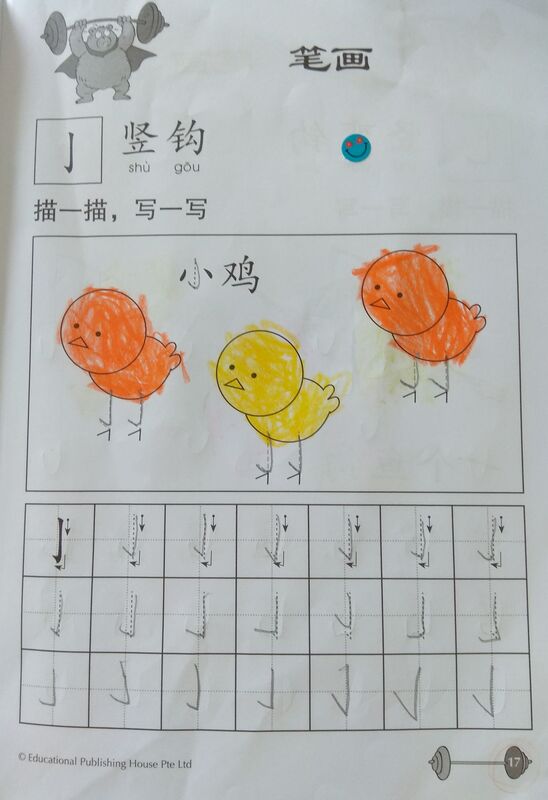|
#parenting #woes #tips #real #examples Is a K1 child capable of taking instructions like "Please learn your spelling"? This question was posed to me recently by a friend. She and her husband are also worried parents. Their child was having difficulty learning his spelling words and did not show interest in the task. When I asked for more details, the child was given a sheet of words to be traced, then copied on the writing lines. The parents would try to prompt for learning and testing throughout the day. The parents felt their expectations and instructions were not very difficult, that they just wanted him to sit down and learn and write. Firstly, I feel for the parents. Clearly they are engaged parents - they wish to coach the child in his learning and they are aware that literacy is important. The difficulty is that the parents started on the wrong premise and assumptions about their child. As an educator, this is often the toughest aspect of my job - helping parents and caregivers see things from the child's point of view and to have age-appropriate expectations. Here are 5 issues to consider within this topic: 1) Sit down and write properly --> this is not equivalent to showing interest in the material. It could be purely mechanical, or worse, due to fear of threats like physical punishment. 2) Preschoolers show interest in various ways. They scoot over when you are working on something, they sing, they dance, they laugh, they keep fiddling with an object etc. Sitting down to listen, read and write is only one way of expressing interest. 3) Sitting down --> This requires developed gross motor skills and core muscle strength. Humans develop these prerequisites by actually getting up and working. We don't develop the skill of sitting down simply by sitting down more often. 4) Writing properly --> This requires fine motor skills, so let's take out kids clay, get the children to thread beads, allow them to open and close bottle caps, etc. A suitable physical environment and lots of encouragement would also boost the child's confidence in writing. 5) Lack of interest --> Kids, just like adults, need to see a purpose in what they do. This can be related to their lives and their feelings. The words might be things they see in real life or find in a story book. The activities are fun or funny. They are praised for their attempts at the tasks (and not just completion or mastery). ---------------------- To help us see how very young children can be guided to review what they have learned, let me share one daily life example. Our 5-year-old is reviewing Chinese strokes at home. I do the finger tracing with her for the stroke, then talk about how the shape of the chick's feet are the same as the stroke. We enjoy the discussion because she likes to draw. Now she remembers the stroke and can apply it to art (which isn't the subject of Chinese). Then she does all the tracing and colouring by herself. I help her sometimes with copying, by holding her hand or helping to erase the strokes she is less than happy with. I don't erase for her otherwise, because it's her work. I just point out to her what to look out for. While she's busy with this, I steal 5 minutes to do my work on my laptop. She finishes, then needs me to affirm her work with the stickers or by drawing stars. We repeat for the next Chinese stroke. So after a few sheets she gets into a rhythm and I don't have to keep explaining how to review the stroke. As a parent, this is when I sneak in more pockets of time to complete my work or chores, while still attending to her questions. I also guide her on target setting. She gets to decide which page to stop at for the day. On this day, she chooses page 17 so we circle it. She finishes and can proceed to do other things. We can come back to it later in the day or the next. ---------------------- When a child is struggling to fulfill our adult expectations, we need to ask ourselves why. Let's understand the gap between the child's capabilty and our expectations. Is it a matter of willingness or capability, and how can it be a mixture of both? Is the child prepared for the tasks? Have we as adults lost the focus and need a new lens of reality? At the preschool level, children are still experiencing learning processes - What does it mean to start a new topic? How do I review? How do I practise? How do I find out the things I want to know? It's truly all at the beginning of what adults might call "study skills" or, as I prefer, "learning strategies" that last us a life time. Children, especially the very young, need to be explicitly taught these learning strategies. They also need someone to help gather and direct their attention on the subject matter. Simply put, young children sometimes just don't know what to look at on their own. Most importantly, children also learn best when the people around them are true models. Parents and caregivers often feel we need to teach the children, yet this is a top-down approach. We really should be accompanying the children while demonstrating "how" - this is the best and irreplaceable guidance we can give in our capacity as parents and caregivers.
0 Comments
Leave a Reply. |
Whatsapp
|



 RSS Feed
RSS Feed